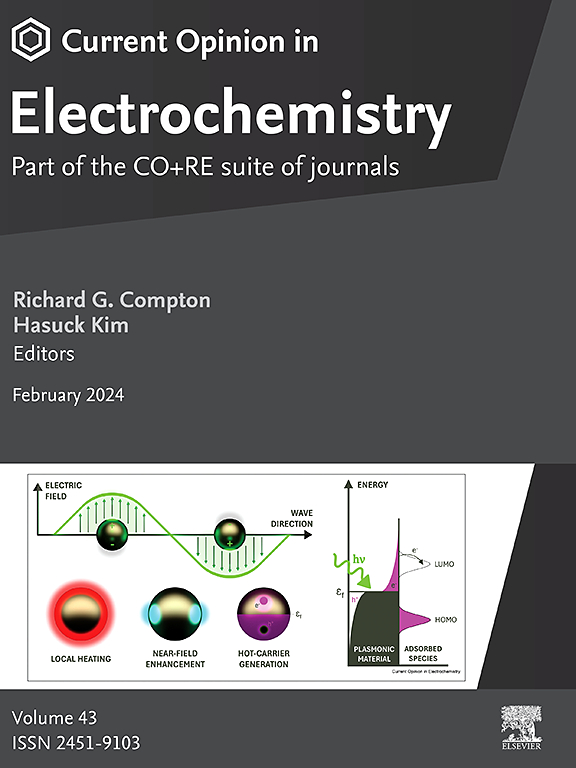Electrocatalysis of organics for electrolysis and/or fuel cells: Some thoughts on using the ratio of forward to backward peak current as a measure of electrocatalyst efficiency and/or poisoning
IF 6.9
2区 化学
Q1 CHEMISTRY, PHYSICAL
引用次数: 0
Abstract
In the current context of sustainability, the selective electrocatalytic transformation of biomass-derived organic substances into value-added products should offer vast design possibilities for power generation or the electrosynthesis of fuels and commodity chemicals. In this contribution, we have examined a number of concepts concerning the electrocatalysis of organic molecules for which noble metals cannot be excluded from the electrocatalyst composition without compromising the significant energy savings promised in electrolyzers (up to 50 % for H2 co-production compared with conventional water electrolysis). The widespread practice of using the ratio of forward peak current to backward peak current as a measure of activity, anti-poison capacity or removal of adsorbed poisons or intermediates is unsuitable based on voltammetry and spectroelectrochemical analysis.

用于电解和/或燃料电池的有机物的电催化:使用正向和反向峰值电流的比率作为电催化剂效率和/或中毒的量度的一些想法
在当前可持续发展的背景下,将生物质衍生的有机物质选择性电催化转化为增值产品应该为发电或燃料和商品化学品的电合成提供巨大的设计可能性。在这篇文章中,我们研究了一些关于有机分子电催化的概念,其中贵金属不能从电催化剂组成中排除,而不会影响电解器中承诺的显著节能(与传统的水电解相比,H2联合生产高达50%)。基于伏安法和光谱电化学分析,使用正向峰值电流与反向峰值电流之比作为活性、抗毒能力或去除吸附毒物或中间体的衡量标准的普遍做法是不合适的。
本文章由计算机程序翻译,如有差异,请以英文原文为准。
求助全文
约1分钟内获得全文
求助全文
来源期刊

Current Opinion in Electrochemistry
Chemistry-Analytical Chemistry
CiteScore
14.00
自引率
5.90%
发文量
272
审稿时长
73 days
期刊介绍:
The development of the Current Opinion journals stemmed from the acknowledgment of the growing challenge for specialists to stay abreast of the expanding volume of information within their field. In Current Opinion in Electrochemistry, they help the reader by providing in a systematic manner:
1.The views of experts on current advances in electrochemistry in a clear and readable form.
2.Evaluations of the most interesting papers, annotated by experts, from the great wealth of original publications.
In the realm of electrochemistry, the subject is divided into 12 themed sections, with each section undergoing an annual review cycle:
• Bioelectrochemistry • Electrocatalysis • Electrochemical Materials and Engineering • Energy Storage: Batteries and Supercapacitors • Energy Transformation • Environmental Electrochemistry • Fundamental & Theoretical Electrochemistry • Innovative Methods in Electrochemistry • Organic & Molecular Electrochemistry • Physical & Nano-Electrochemistry • Sensors & Bio-sensors •
 求助内容:
求助内容: 应助结果提醒方式:
应助结果提醒方式:


